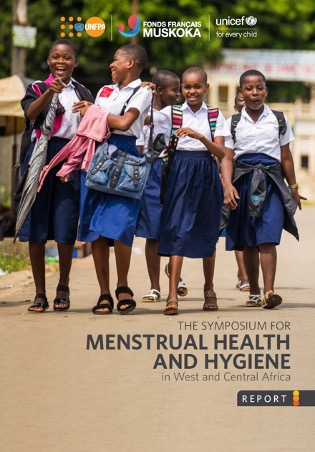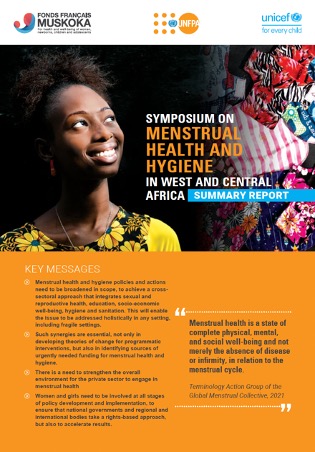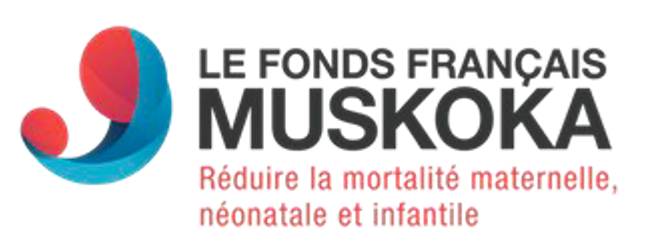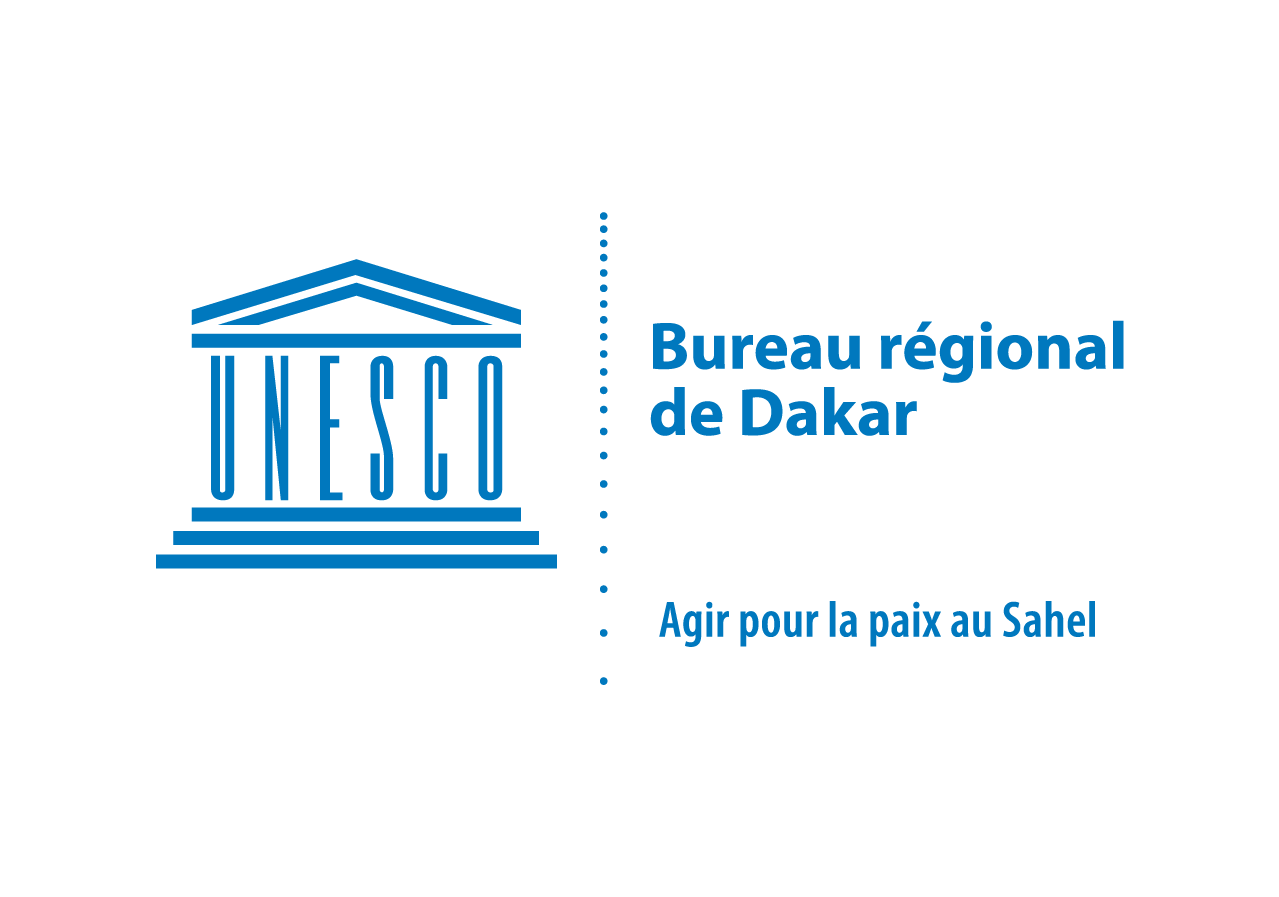Menstrual health and hygiene in West and Central Africa …
We talk about it?
What are we talking about?
Menstrual Hygiene and Management (MHM) focuses on the hygiene practices used by girls. Menstrual health and hygiene encompass more broadly all the health, psychological, socio-political and environmental factors associated with menstruation.
These systematic factors have been summarized by UNESCO as follows: accurate and timely knowledge; materials available, safe and affordable; informed and comfortable professionals; orientation and access to health services; sanitary and washing facilities; positive social norms; safe and hygienic disposal; and advocacy and policies.
Access for women and girls to menstrual health and hygiene is essential to the achievement of the SDGs and the African Union’s 2063 agenda “The Africa We Want”.
A simple biological fact turned into an obstacle to gender equality and the development of girls
Almost every woman and girl (from menarche to menopause) will have her period on average every 28 days for about 5 days for an average of 36 years. Menstruation begins between 10 and 16 years old (in some exceptional cases from 7-8 years old) and ends on average around 50 years old. During their lifetime, between puberty and menopause, girls and women average their period for about 3,000 days.
However, women and girls may be deprived of some basic human rights, including those relating to education, work and health, which turns a simple biological fact into an obstacle to gender equality. .
While menstruation is a biological process, in many countries it is considered a taboo. Without information, protection and hygiene, the well-being and health of women are sometimes endangered.

Menstruation, a natural phenomenon, remains a taboo subject that hinders the life of young girls and women.
Obstruction of access to information:
In West and Central Africa, large numbers of girls and women lack access to appropriate information, adequate sanitation and menstrual health products that are accessible, comfortable, convenient, affordable and safe to use. . This situation is all the more aggravated for young girls and women living in precariousness, in remote areas, isolated and / or having been displaced or affected by emergency situations.
For lack of information, menarche, the first decisive experience, is often a missed appointment with serious implications.
The first period is a difficult, even traumatic, experience for most girls. This situation is mainly due to the lack of knowledge about the rules; due to lack of information, they are neither psychologically nor materially prepared for the onset of their period. Young girls do not have absorbents, which can lead to inappropriate practices (use of inadequate protective materials); Without information and protection, young girls may experience this first episode of their life as a trauma (stained clothes and mockery from classmates).
Obstruction of freedoms and education:
In many societies in West and Central Africa, periods are the subject of negative socio-cultural perceptions associated with impurity or filth. Many prohibitions, social or religious limit women’s access to certain activities or places (isolation, restrictions on food or activities, or participation in prayer, for example).
It hinders the daily activities of girls and women, leads to stigma and discrimination, isolates them from their friends and local communities, increases the risk of absenteeism and dropping out of school.

The lack of infrastructure for girls’ menstrual hygiene fosters bad practices and contributes to school absenteeism.
Adequate health infrastructure, that is to say clean, respectful of privacy and secure, is essential for better management of girls’ menstrual hygiene. The unavailability of suitable infrastructure, both at home and at school, explains some poor menstrual hygiene practices. In some cases, women and girls have no access to sanitary protection.
They may resort to the use of rags, leaves, newspaper or other makeshift materials to absorb the menstrual blood. They can also leak blood, which causes shame and embarrassment. Young girls unable to change absorbent at school for lack of adequate sanitary facilities (lack of privacy) or unsanitary or insufficiently secure absenteeism for part of the school day or the entire period of their menstruation.
Menstrual hygiene products are essential products.
to know
%
of the population of West and Central Africa is under 24
%
of girls are married before the age of 15
%
girls have had sex
%
without using contraceptive methods
A symposium
- A virtual conference organized on the occasion of International Day of the Girl 2020 (IDG 2020, October 11) on October 12 from 11 a.m. to 1 p.m. GMT. This year’s theme for IDG2020, “My Voice, Equality for Our Future,” will focus on re-imagining a world shaped by the voice, vision and solutions of adolescent girls.
- A 2-day symposium, which will take place in May 2021, on the occasion of the International SHM Day. This face-to-face symposium (subject to the health situation) will bring together the various actors on SHM at the regional level in order to collectively identify the means to strengthen the programming and promotion of SHM in the region.

Inequality and injustice: although natural, menstruation puts girls and women at high risk and puts many of their universally recognized human rights at risk.
RELAY THE MESSAGE: #letstalkperiod
Contact us
To contact us, it’s very simple, complete the form below and we will get back to you as soon as possible.












